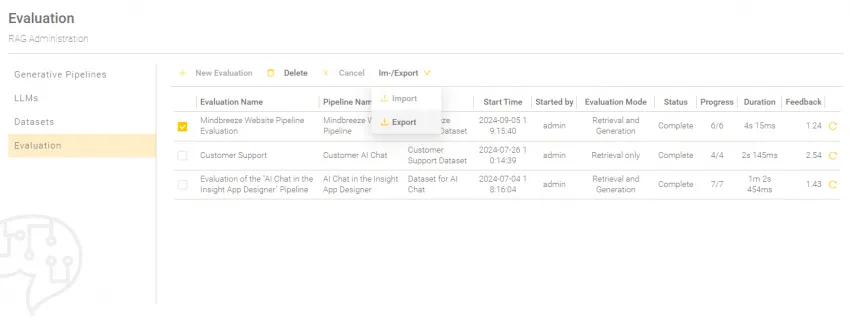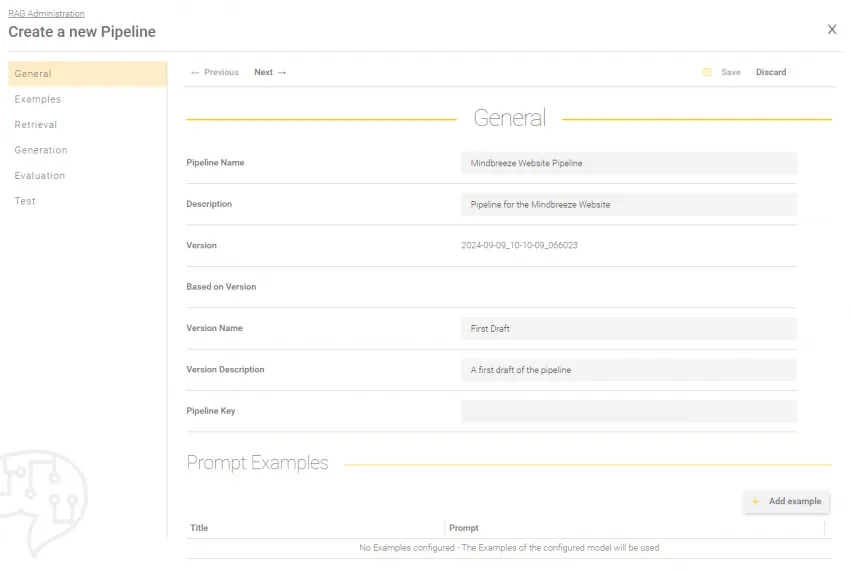New features of Mindbreeze InSpire 24.6 Release
The most important new features of Release 24.6 at a glance.
Datasets and Evaluations imports and exports now possible in Insight Services for Retrieval Augmented Generation
With the Mindbreeze InSpire 24.6 release, Insight Services for Retrieval Augmented Generation (RAG) enables the import and export of datasets and evaluations.
This innovation allows users to quickly and easily make datasets and evaluations available to other users, to back them up externally, and to use datasets from other applications with the import function.
Mindbreeze InSpire exports data sets in the output formats JSON and CSV. If there are multiple data sets, a ZIP file is exported containing the data sets in both output formats.
Exporting an evaluation is only possible with the JSON output format.
Optimized user interface and extension of the API for Insight Services for Retrieval Augmented Generation
The user interface of the Insight Services for Retrieval Augmented Generation (RAG) has been optimized with the Mindbreeze InSpire 24.6 release. Users can now configure their pipelines, large language models (LLMs), data sets, and evaluations more intuitively thanks to a more structured display.
Users can now access detailed information on individual answers through the expanded API. In addition to the generated answer and the corresponding rating, further details can be viewed, such as whether the source of the answer is the document content or a metadata item. This enables users to easily analyze and understand the answers obtained from the retrieval process.
Detailed information on all innovations can be found in our release notes.
Contact our experts for further information.
Latest Blogs
Winning Proposals with Generative AI: Automate RFP Content and Curation
In the digital landscape that dominates all facets of business, companies rely on efficient, accurate knowledge base management to streamline processes and deliver critical information to customers and employees alike.
AI-Powered Contract Management: Minimizing Risks and Meeting Compliance Standards
Today’s fast-paced digital environment calls for contract managers to be laser-focused on speed. However, increasing speed cannot come at the cost of accuracy, making scaling much more complex and demanding.



